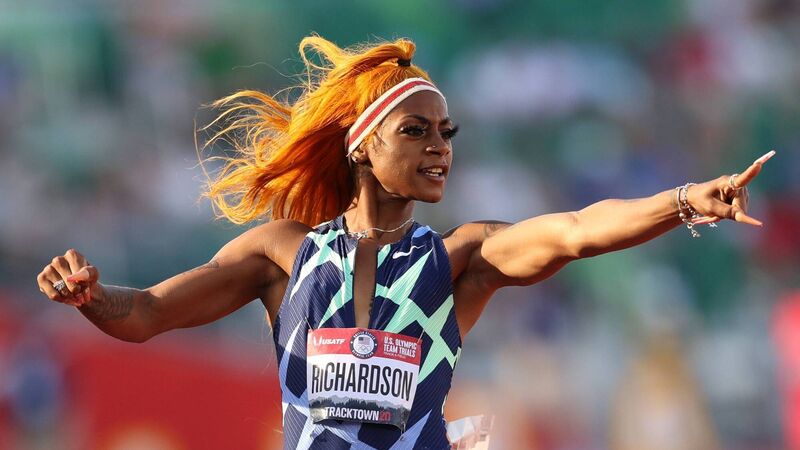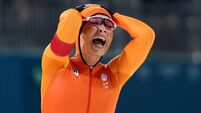Eimear Ryan: A young athlete like Sha'Carri Richardson should not have to insist on her humanity

EUGENE, OREGON - JUNE 19: Sha'Carri Richardson runs and celebrates in the Women's 100 Meter semifinal on day 2 of the 2020 U.S. Olympic Track & Field Team Trials at Hayward Field on June 19, 2021 in Eugene, Oregon. (Photo by Patrick Smith/Getty Images)
.
These three words were tweeted by Sha’carri Richardson at the beginning of the month, shortly after her meteoric ascent as one of Team USA’s brightest hopes at the Tokyo Olympics. The 21-year-old had become a gold-medal favourite in late June when she won the 100m at the United States Olympic Trials.












